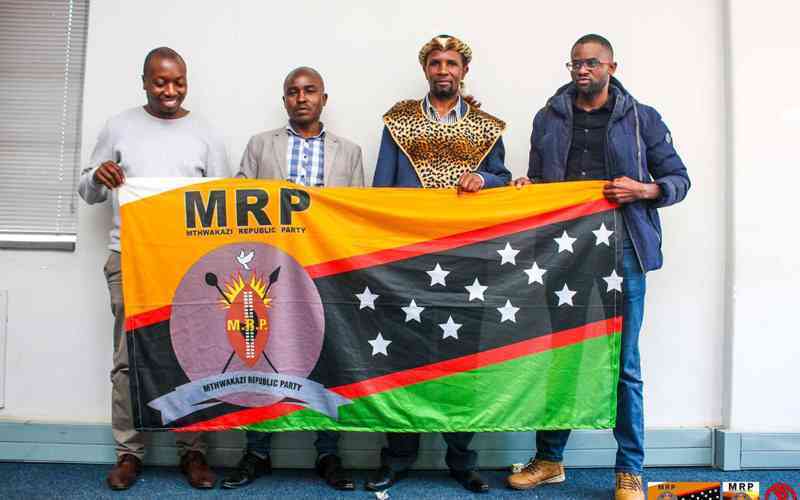
[ad_1]
By Peter Makwanya
The destructive nature of climate change impacts on ecological diversity are being witnessed around the globe.
The climate-induced floods, hailstorms, droughts, heatwaves, hunger and famine, violent cyclones, locusts, among others have destroyed infrastructure, physical features, crops and contributed to loss of lives.
As a result, as natural resources are impacted negatively by the effects of climate change, communities are experiencing shortages, food insecurity and water scarcity, thereby setting people apart and against each other as they struggle to have access and control of the few available resources.
While climate change adaptation is key, some societies still have mixed feelings or contradictory views about the noble aspect of adaptation. These perceptions actually sow seeds of doubt, loss of confidence and inability to believe that as human beings we can actually heal the earth and make it a better place to live.
As climate change impacts gradually eat into nature, land and forest restorations become challenging while some resources, features and species are threatened with extinction. The subsistence-driven lives of many poor communities have not done much to transform their situations to deliver themselves from the culture of shortages and poor resource mismanagement.
Failure to sustain their households satisfactorily cause tensions in the homes, villages, communities and countries. This sees anger creeping in, as challenges associated with the inability to maintain living standards and improve lives are now firmly in the public domain. When something is in the public domain, it is no longer a secret, hence it exists as community fodder or rather for public consumption.
- Chamisa under fire over US$120K donation
- Mavhunga puts DeMbare into Chibuku quarterfinals
- Pension funds bet on Cabora Bassa oilfields
- Councils defy govt fire tender directive
Keep Reading
Instead of communities engaging in climate proofing their localities and emerge functional and relevant, including helping each other to cope with negative impacts of climate change and build resilience, they spend time disagreeing rather than reaching out to each other. The mistrust has overtaken reasoning and overshadowed climate interventions and this is not healthy for livelihoods and the environment.
When resources become limited, people become insecure and speculative, leading to misunderstandings and lack of respect, setting the stage for conflict, whether mild or violent. Under this climate of not believing in everything including one another, positive guidance and conflict literacy skills have to be imparted to overcome community challenges. It is significant and sufficiently empowering in this regard, that communities need knowledge of disaster preparedness after catastrophes or unhealthy living conditions. It is after they have realised these critical components that they can engage in growing more drought and climate resilient crops, regenerate their landscapes and nurture forests, conserve water, maintain moisture and invest in clean energy in order to grow smart. The overall aim is to build resilience and avoid suspicions and mistrusts, be self-sufficient and do away with insecurities.
If communities cannot cope with climate change impacts, hope is lost, waiting just for a matchstick to ignite tempers. Hunger makes people insecure and unsettled, they become anxious, and struggle and compete for the few resources available, leading to fighting among themselves. Something of this nature also happens when natural resource governance is poor. Then they start blaming others for their mistakes, incompetency and inadequacies. When this happens, the rifts need to be managed and mended appropriately as well as being approached with sanity and handled with care in utmost good faith, where everyone’s role would be acknowledged and appreciated. That is value addition in times of conflict in order to benefit all participants.
In this regard, climate change does not always cause resources to dwindle but accelerates the decimation of resources, make them disappear at unprecedented rates, with human causes as prime movers. It is against this background that communities should not spend most of their times nurturing their vulnerabilities, watching ignorance and mistrust growing, without being conscious of such momalies as they risk staying in vulnerable situations for quite some time before being delivered from the unfortunate experiences.
When resources are no longer within the reach of many, vulnerable groups in the communities like women, children, the physically challenged and people with disability will no longer cope. Travelling for longer distances in search of firewood, water and food is not healthy and can compromise these groups’ security and safety, leading to their abuse.
In a society where there are only two classes of people, that is the rich and the poor, mistrust takes centre stage. The poor will always blame the rich for their predicament including keeping large tracts of land as the poor struggle for living space. The rich blames the poor for theft of their resources, including laziness and a penchant for having many children.
Although population explosion is never talked about more as a catalyst to climate change, it has negative impacts in the decimation of resources and disappearance of forests.
Obviously life is more about the numbers’ game, when population figures increase, the demand for natural resources also increases leading to people encroaching onto each other’s properties, setting the stage for open conflict. In this respect, it is unfortunate that the poor sometimes fail to remember that, it is within their responsibilty to keep their families small.
When emotions have been bottled up for long and are promising to explode and get out of hand, conflict would be brewing and when it happens then it is significant that communities have sufficient knowledge of how to put out the fire. This is not only important in resilience building but also towards peace-building and tolerance.
It is important in conflict management literacy and orientation to make peace with yourselves before making peace with the environment. One cannot get into the environment with bruised ego, stress and inward tensions, they will do more harm than good.
If people cannot settle their differences and make peace, then it would be difficult for them to respect and take care of the environment. That is when they resort to the rule of the axe and other eco-freaky behaviours detriment to environmental growth.
There is always an inherent connection between environmental stewardship, peaceful co-existence and conflict management which must always be practised.
In this regard, community conflicts should never be ignored or wished away, especially those that have a lot to do with resource management. While competition is good, it is unhealthy in an environment of scarcity.
[ad_2] Source link










